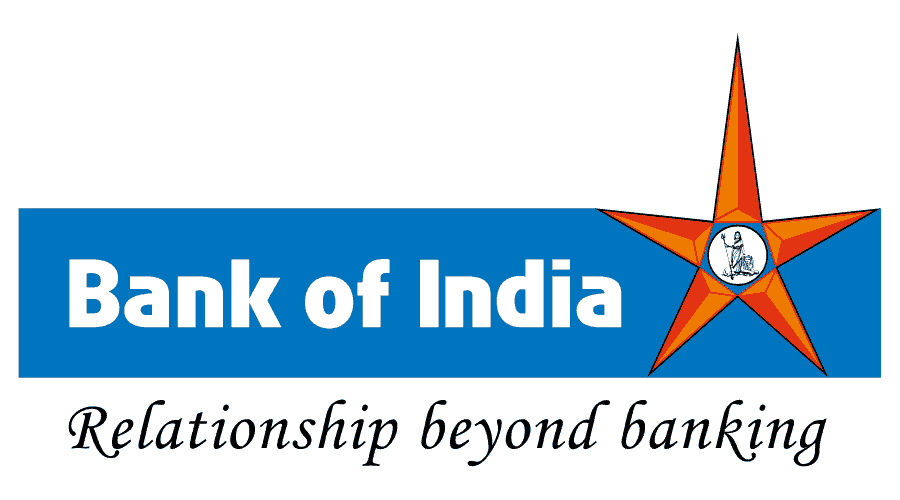Best Rates Quick View
Scan the top picks across all term lengths
Updated: 01 Jan 2026, 09:00 AM
Current Rates
| Bank Details |
1
month ↕ |
3
months ↕ |
4
months ↕ |
5
months ↕ |
6
months ↕ |
9
months ↕ |
12
mths ↕ |
18
mths ↕ |
1
year ↕ |
2
years ↕ |
3
years ↕ |
4
years ↕ |
5
years ↕ |
|---|---|---|---|---|---|---|---|---|---|---|---|---|---|
|
|
1.90%
|
3.00%
|
3.10%
|
3.30%
|
3.45%
|
3.40%
|
3.50%
|
3.60%
|
3.50%
|
3.65%
|
3.90%
|
4.02%
|
4.20%
|
|
|
1.80%
|
2.85%
|
3.00%
|
3.10%
|
3.45%
|
3.50%
|
3.45%
|
3.50%
|
3.45%
|
3.65%
|
4.00%
|
4.10%
|
⭐
4.30%
Top Rate
|
|
|
1.80%
|
2.90%
|
3.00%
|
3.10%
|
3.45%
|
3.45%
|
3.55%
|
3.40%
|
3.55%
|
3.65%
|
3.90%
|
4.00%
|
4.10%
|
|
|
2.00%
|
3.15%
|
3.25%
|
3.45%
|
3.55%
|
3.50%
|
3.50%
|
3.50%
|
- |
3.55%
|
3.75%
|
3.80%
|
3.90%
|
|
|
2.10%
|
3.25%
|
3.35%
|
3.55%
|
3.65%
|
3.60%
|
3.60%
|
3.60%
|
- |
3.65%
|
3.85%
|
3.90%
|
4.00%
|
|
Rating:
Min Deposit:
$0
|
2.00%
|
3.15%
|
3.25%
|
3.45%
|
3.55%
|
3.50%
|
3.50%
|
3.55%
|
- |
3.55%
|
3.75%
|
3.80%
|
3.90%
|
|
|
1.90%
|
3.15%
|
3.25%
|
3.35%
|
3.60%
|
3.50%
|
3.55%
|
3.50%
|
- |
3.55%
|
3.80%
|
3.85%
|
4.05%
|
|
|
2.00%
|
3.00%
|
3.25%
|
3.50%
|
3.70%
|
3.70%
|
3.70%
|
3.80%
|
- |
3.85%
|
3.85%
|
3.85%
|
3.85%
|
|
|
2.20%
|
2.50%
|
2.70%
|
2.95%
|
3.20%
|
3.20%
|
3.20%
|
3.25%
|
- |
3.25%
|
3.45%
|
3.60%
|
3.75%
|
|
|
1.90%
|
3.00%
|
- | - |
3.45%
|
3.40%
|
3.40%
|
3.45%
|
- |
3.70%
|
4.00%
|
4.10%
|
- |
|
|
1.80%
|
3.00%
|
3.00%
|
3.10%
|
3.40%
|
3.40%
|
3.40%
|
3.40%
|
3.40%
|
3.45%
|
3.60%
|
3.75%
|
3.90%
|
|
|
1.95%
|
3.05%
|
3.15%
|
3.25%
|
3.50%
|
3.40%
|
3.55%
|
3.60%
|
- |
3.65%
|
3.90%
|
3.95%
|
4.15%
|
|
|
- |
3.05%
|
3.10%
|
3.25%
|
3.55%
|
3.40%
|
3.55%
|
- |
3.55%
|
3.75%
|
3.90%
|
4.10%
|
4.20%
|
|
|
1.85%
|
3.05%
|
- | - |
3.55%
|
3.45%
|
3.60%
|
3.70%
|
- |
3.70%
|
4.00%
|
4.15%
|
🏆
4.30%
Best Rate
|
|
|
1.95%
|
3.00%
|
3.15%
|
3.30%
|
3.45%
|
3.45%
|
3.50%
|
3.60%
|
- |
3.65%
|
4.00%
|
- | - |
|
|
1.90%
|
3.00%
|
3.10%
|
3.30%
|
3.45%
|
3.40%
|
3.50%
|
3.50%
|
- |
3.75%
|
3.95%
|
4.10%
|
⭐
4.25%
Top Rate
|
|
|
1.80%
|
2.85%
|
3.00%
|
3.10%
|
3.45%
|
3.40%
|
3.50%
|
3.50%
|
3.50%
|
3.75%
|
3.90%
|
4.10%
|
4.20%
|
Last updated: January 01, 2026 at 09:00 AM
Understanding Term Deposits: Your Complete Guide to Fixed-Rate Savings in New Zealand
Term deposits remain one of New Zealand's most popular investment options for conservative savers seeking guaranteed returns. As of January 2026, we track rates from 17 major financial institutions across 13 different term lengths. Whether you're considering short-term deposits for flexible savings or longer-term fixed investments, understanding how term deposits work and when to invest can help you make informed decisions about your savings strategy.
Quick Market Insights (01 January 2026):
- • Current rates range from 1.80% to 4.30%
- • Average minimum deposit: $14,940
- • 17 institutions tracked across 13 term lengths
What Are Term Deposits and How Do They Work?
A term deposit is a fixed-term investment where you deposit money with a bank or financial institution for a predetermined period. Terms can vary from short periods of a few months to several years. In exchange for locking away your funds, you receive a guaranteed interest rate that remains fixed for the entire investment term.
Unlike regular savings accounts where interest rates can change, term deposits provide certainty. When you invest your money at an agreed rate, you know what return you'll receive at maturity.
Key Benefits of Term Deposits for New Zealand Investors
Term deposits offer several advantages that make them attractive to risk-averse investors:
Guaranteed Returns: Your interest rate is locked in from day one, protecting you from market volatility and rate decreases during your investment term.
Capital Protection: Term deposits with New Zealand banks are considered low-risk investments. Your principal amount is secure, and you'll receive it back in full at maturity along with earned interest.
No Management Fees: Unlike managed funds or KiwiSaver accounts, term deposits typically charge no ongoing fees or establishment costs.
Flexible Terms: Banks offer various term lengths to match different investment timelines and goals.
Term Deposits vs Savings Accounts: Making the Right Choice
While both options offer secure returns, they serve different purposes in your investment strategy:
Term deposits generally provide higher interest rates in exchange for locking away your money. They're suitable when you have funds you won't need for a specific period and want to maximise returns without risk.
Savings accounts typically offer lower rates but more flexibility. They're often used for funds you may need to access regularly or at short notice. Many investors use both as part of their overall savings strategy.
6 months Terms
Rate range: 3.20% - 3.70%
Available from: 17 banks
How Interest Payments Work on Term Deposits
Understanding interest payment options helps you choose the right structure for your needs:
At Maturity: Many term deposits pay all interest when the term ends. This is straightforward but means you don't receive any income during the term.
Regular Payments: Some banks offer monthly, quarterly, or annual interest payments. This provides income during the term but may affect your overall return.
Compounding Options: Certain term deposits allow interest to be reinvested, potentially increasing your returns over the investment period.
Tax Implications for Term Deposit Investors
All term deposit interest is taxable income in New Zealand. When opening a term deposit, you must provide:
- Your IRD number
- Your prescribed investor rate (PIR) or tax rate
Banks deduct Resident Withholding Tax (RWT) from interest payments based on the rate you provide. It's important to ensure you're on the correct tax rate to avoid under or overpayment of tax. Consult current IRD guidelines or a tax professional for your specific situation.
Breaking a Term Deposit: What You Need to Know
While term deposits are designed to be held until maturity, circumstances may require early access to funds. Breaking a term deposit typically results in:
Reduced Interest: Most banks apply an interest rate reduction if you withdraw early. The penalty varies between institutions and may depend on how early you withdraw.
Notice Requirements: Banks often require advance notice for early withdrawals. The notice period varies by institution.
Principal Protection: Your original deposit amount is protected - you won't lose your principal, though you may forfeit some or all interest earned.
Smart Strategies for Term Deposit Investing
Laddering: Consider splitting your funds across multiple term deposits with different maturity dates. This can provide regular access to funds while maintaining competitive returns. Our term deposit calculator helps model different laddering scenarios.
Rate Comparison: Interest rates can vary between banks. Our comparison tool shows differences of up to 2.50 percentage points for similar terms. Take time to compare options from different institutions.
Term Selection: Consider your future cash needs when selecting terms. Longer terms may offer different rates than shorter ones. Review our comprehensive term length guide for detailed strategies.
Communication: Some banks may offer better rates to existing customers or for larger deposits. It's worth inquiring about available rates before committing.
Minimum Deposits and Maximum Investment Limits
Banks set different minimum deposit requirements for term deposits. Based on our current data, minimum deposits range from $0 to $100,000, depending on the institution and product.
Some banks offer tiered rates where different deposit amounts may qualify for different interest rates. Check with individual banks for their specific requirements and any maximum limits that may apply.
-
Up to 4.20%
 ANZ
ANZ
-
Up to 4.30%
 ASB
ASB
-
Up to 4.10%
 BNZ
BNZ
-
Up to 3.90%
Bank of Baroda
-
Up to 4.00%
Bank of Baroda Freedom 60
-
Bank of Baroda.Up to 3.90%
-
Up to 4.05%
 Bank of China
Bank of China
-
Up to 3.85%
 Bank of India
Bank of India
-
Up to 3.75%
 China Construction Bank
China Construction Bank
-
Up to 4.10%
 Co-operative Bank
Co-operative Bank
-
Up to 3.90%
Heartland Bank
-
Up to 4.15%
 ICBC
ICBC
-
Up to 4.20%
 Kiwibank
Kiwibank
-
Up to 4.30%
Rabobank
-
Up to 4.00%
 SBS Bank.
SBS Bank.
-
Up to 4.25%
 TSB Bank
TSB Bank
-
Up to 4.20%
 Westpac
Westpac
Online vs Branch Applications: Modern Banking Options
Many banks now offer online term deposit applications alongside traditional branch services. Digital options may include:
- Online application processes
- Electronic identity verification
- Digital account management
- Mobile banking integration
Both online and branch channels typically offer access to the same products, though the application process may differ.
Term Deposit Alternatives Worth Considering
While term deposits suit many investors, other options include:
Notice Saver Accounts: These require advance notice for withdrawals but may offer more flexibility than term deposits.
Corporate Bonds: These may offer different returns but come with different risk profiles.
PIE Term Deposits: Portfolio Investment Entity term deposits may offer tax advantages for some investors.
Common Term Deposit Mistakes to Avoid
Automatic Renewal: Review rates and options before your term deposit matures rather than allowing automatic renewal.
Tax Considerations: Ensure you're on the correct tax rate and understand the tax implications of your investment.
Liquidity Planning: Maintain adequate accessible savings for emergencies to avoid needing to break term deposits.
Institution Research: Consider the stability and reputation of financial institutions alongside interest rates.
Making Informed Term Deposit Decisions
Term deposits continue to play an important role in many New Zealand investment portfolios. They offer security and predictable returns for conservative investors and those saving for specific goals.
Before investing, consider:
- Your cash flow needs during the investment term
- Current interest rate environment
- Your overall investment strategy
- The reputation and stability of your chosen institution
Regular review of your term deposit strategy, especially as deposits approach maturity, helps ensure your money continues to work effectively within your risk tolerance and financial goals.
Frequently Asked Questions About Term Deposits
How much money do I need to open a term deposit?
Minimum deposit requirements vary significantly between banks. Some institutions accept smaller amounts while others require larger minimum deposits. Contact individual banks to confirm their current requirements.
Can I add money to an existing term deposit?
Generally, you cannot add funds to an existing term deposit once it's been established. If you want to invest additional money, you'll need to open a separate term deposit.
What happens when my term deposit matures?
When your term deposit reaches maturity, you'll need to provide instructions to your bank. Common options include:
- Withdrawing the funds to your nominated account
- Rolling over into a new term deposit at current rates
- Rolling over the principal only and withdrawing the interest
- Splitting the funds between multiple options
Banks have different policies regarding grace periods and automatic renewals. Some may automatically reinvest your funds if you don't provide instructions, while others may transfer the money to a standard account. Check your bank's specific terms when opening your term deposit to understand their maturity process.
Are term deposits covered by government guarantee?
New Zealand doesn't currently have a government deposit guarantee scheme. However, the Reserve Bank of New Zealand regulates banks and monitors their financial stability. Check the credit ratings and financial strength of any institution before investing.
Can I have a joint term deposit?
Many banks offer joint term deposits, though availability varies. Joint accounts typically require both account holders to agree to any changes or early withdrawals. Confirm options with your chosen bank.
How is term deposit interest taxed?
Term deposit interest is taxable income in New Zealand. Banks deduct Resident Withholding Tax (RWT) at your nominated rate. It's important to provide the correct tax rate to avoid tax complications. Consult current IRD guidelines or a tax professional for advice specific to your situation.
What's the longest term deposit available?
Maximum term lengths vary between banks. Some offer extended terms while others focus on shorter periods. Consider your long-term needs and the interest rate environment when selecting terms.
Can I use my term deposit as security for a loan?
Some banks accept term deposits as security for loans or overdrafts. This arrangement varies by institution and may depend on the specific loan product. Discuss options with your bank if this interests you.
Do I need to be a New Zealand resident to open a term deposit?
Residency requirements vary by bank. Some institutions require New Zealand residency or specific visa types, while others may accept non-resident applications with additional documentation. International tax implications may also apply.
How quickly can I access my money in an emergency?
Early withdrawal processes and timeframes vary between banks. While term deposits are designed to be held until maturity, most banks have procedures for genuine financial hardship. You'll typically face interest penalties for early withdrawal. Contact your bank to understand their specific policies.
Are online term deposit rates better than branch rates?
Banks may offer the same rates through different channels, though this can vary. Online-only banks may have different rate structures than traditional banks. Compare options from various sources to find suitable rates.
Should I choose monthly interest payments or interest at maturity?
The choice between payment frequencies depends on your individual needs:
- Regular payments provide income during the term
- Payment at maturity means all interest is paid at once
Consider your cash flow requirements and any potential tax implications when deciding.
What's the difference between a term deposit and a PIE term deposit?
PIE (Portfolio Investment Entity) term deposits have different tax treatment than standard term deposits. They may benefit investors in certain tax brackets. Consult a financial advisor or tax professional to understand which option might suit your circumstances.
Can I transfer my term deposit to another bank?
You cannot directly transfer a term deposit between banks. To move funds to another institution, you must either wait until maturity or break the deposit (potentially incurring penalties) and reinvest elsewhere.
How do term deposit rates compare to inflation?
Term deposit returns should be considered in the context of inflation and your overall investment objectives. While term deposits offer security and guaranteed returns, consider how these returns compare to the cost of living increases over time. This comparison can help inform your investment decisions as part of a balanced portfolio approach.
Ready to Compare Rates?
Use our comparison tool above to find the best current rates for your preferred term length. Last updated 01 January 2026 with rates from 17 institutions.
Disclaimer: This information is for educational purposes only and does not constitute financial advice. Interest rates shown are indicative and subject to change. Always verify current rates and terms directly with financial institutions before making investment decisions. Consider seeking professional financial advice for your specific circumstances.